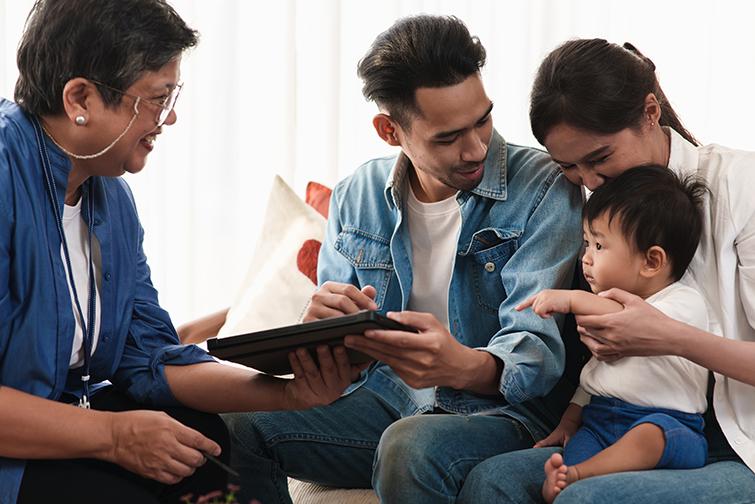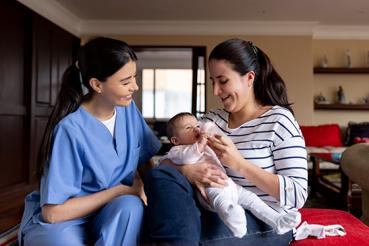Spotlight on Home Visiting Studies

Home visiting interventions provide valuable benefits for families with young children from birth through age five. These interventions deliver essential support and have the potential to strengthen parent-child relationships and foster children’s healthy development. Home visiting programs evolve to meet families’ changing needs and to fit within constraints of broader systems, as evidenced by the shift to virtual implementation for many home visiting programs during the COVID-19 pandemic. Throughout these changes, the consistent and accurate use of evidence-based practices by home visitors is important for realizing program benefits. However, obstacles such as limited access to high-quality professional learning opportunities currently impede the widespread adoption of these effective practices
Working together with home visiting programs and systems, AIR has conducted evaluations of the implementation and impacts of home visiting models and has worked to support the use of evidence-based practices in home visiting programs.
Evaluating Home Visiting Programs
AIR has partnered with home visiting programs to conduct rigorous evaluations of their program models and innovations, with the goal of informing refinements and supporting continuous quality improvement.
Early Language Home Visiting Study
AIR conducted a randomized control trial pilot study with a small sample of children, families, and home visitors to evaluate the impacts of an early language intervention, PC TALK, on children’s early language development. Ongoing data collection and analysis, along with rapid cycle assessments, allowed the study team to evaluate implementation on a real-time basis and support continuous quality improvement, using the Institute for Healthcare Improvement’s Collaborative Model. Home visitors enhanced their professional competencies through study participation.
Welcome Baby Study

In response to the shift from in-person to virtual home visits during the COVID-19 pandemic, AIR and its partners at Georgetown University and Juárez & Associates are conducting a longitudinal study of the Welcome Baby program. This evaluation, funded by First 5 LA, will contribute to the body of research related to the effectiveness of the locally developed Welcome Baby home-visiting model. The primary goals of the current evaluation are to (1) examine the implementation of virtual home visits and (2) explore the relationships between Welcome Baby virtual home visits and maternal, child, and family outcomes. Study results will be available in early spring 2024.
Supporting Evidence-Based Practices in Home Visiting
In the Field: Four Steps to Help Home Visitors Increase Use of Evidence-Based Practices
During the COVID-19 pandemic, AIR shared findings from a pilot study testing a new approach to implementing an evidence-based language practice in Part C Early Intervention, Early Head Start, and Parents As Teachers home visiting. Included in this work, AIR developed four steps for home visitors and leaders of home visiting programs to increase the use of evidence-based practices.
Webinar: Evidence-based Home Visiting in the Era of COVID-19
A publicly available webinar brought together AIR staff, prominent home visiting researchers, and national home visiting program staff to discuss home visiting and evidence-based practices during the pandemic. Presenters also discussed implications for practice during COVID-19, considering that home visitors have had to turn to telehealth or video-based visits to deliver services.

